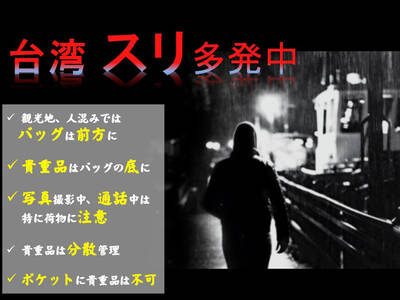It is impossible to compare Taiwan with Afghanistan, academics said yesterday in response to claims that the US’ withdrawal proves that Taiwan cannot rely on US military assistance.
Nearly two decades after the US took control of Kabul, the Taliban on Sunday swiftly retook control of the Afghan capital, prompting the nation’s president to flee.
Critics have been quick to compare the situation to the fall of Saigon after the withdrawal of US troops during the Vietnam War, with some suggesting that the US’ track record bodes poorly for Taiwan’s chances in the event of an invasion by China.
“Taiwan is not Afghanistan,” former National Defense University distinguished lecturer Holmes Liao (廖宏祥) said.
The Afghan government is extremely corrupt, while Taiwan enjoys a stable democracy, he said.
Additionally, Taiwan’s defense strategy is based on a standard island military defense, as opposed to the domestic strife and guerrilla warfare that typify the conflicts in Afghanistan and previously Vietnam, he said, calling the two “entirely different.”
The hidden problems facing Taiwan are the belief in a “great Chinese nation,” defeatism and unprofessionalism within all ranks of the military leadership, Liao said.
The US, Japan, South Korea, the EU and G7 nations all support maintaining stability in the Taiwan Strait in recognition of the nation’s strategic placement within the Indo-Pacific region, Taiwan East Turkestan Association president Ho Chao-tung (何朝棟) said.
Considering China’s considerable global influence, using Afghanistan to claim that Taipei cannot rely on the US is an erroneous comparison, he added.
Meanwhile, Democratic Progressive Party Legislator Cheng Yun-peng (鄭運鵬) yesterday condemned some Chinese Nationalist Party (KMT) politicians for using the Afghanistan example to warn Taiwan about the dangers of relying on the US.
“Some are saying it should serve as a warning to Taiwan not to get too close to the US, and even use it as a taunt about China mounting a military invasion of Taiwan,” Chen wrote on Facebook. “Has the KMT not learned its lesson after being deceived by the Chinese Communist Party so many times? Or maybe it is a case of KMT politicians manifesting their suffering as ‘Stockholm syndrome’ victims?”
The parallel comparison does not work; US troops are not stationed in Taiwan, so there is no US military to withdraw, Cheng said.
“Taiwan has our own military for national defense, while we collaborate with other militaries and procure arms from the US and other allied countries,” he said.
In response to media queries for comment, Kaohsiung Mayor Chen Chi-mai (陳其邁) said: “The events in Afghanistan are connected to the geopolitics of the Middle East.”
“In a geopolitical context, Taiwan is situated at the forefront of an alliance of democratic countries, with peace and stability in the Taiwan Strait also being in the best interest of countries in the region, which Taiwan can contribute to,” he said.

GENSLER SURVEY: ‘Economic infrastructure is not enough. A city needs to inspire pride, offer moments of joy and foster a sense of belonging,’ the company said Taipei was named the city with the “highest staying power” in the world by US-based design and architecture firm Gensler. The Taiwanese capital earned the top spot among 65 cities across six continents with 64 percent of Taipei respondents in a survey of 33,000 people saying they wanted to stay in the city. Rounding out the top five were Vietnam’s Ho Chi Minh City (61 percent), Singapore (59 percent), Sydney (58 percent) and Berlin (51 percent). Sixth to 10th place went to Monterrey, Mexico; Munich, Germany; Sao Paulo, Brazil; Vancouver; and Seoul. Cities in the US were ranked separately, with Minneapolis first at

The Japan-Taiwan Exchange Association has cautioned Japanese travelers to be vigilant against pickpockets at several popular tourist spots in Taiwan, including Taipei’s night markets, the Yongkang Street area, Zhongshan MRT Station, and Jiufen (九份) in New Taipei City. The advisory, titled “Recent Development of Concerns,” was posted on the association’s Web site under its safety and emergency report section. It urges travelers to keep backpacks fully zipped and carried in front, with valuables placed at the bottom of the bag. Visitors are advised to be especially mindful of their belongings when taking photos or speaking on the phone, avoid storing wallets and

Scoot announced yesterday that starting in October, it would increase flights between Taipei and Japan’s Narita airport and Hokkaido, and between Singapore and Taipei. The low-cost airline, a subsidiary of Singapore Airlines, also said it would launch flights to Chiang Rai in Thailand, Okinawa and Tokyo’s Haneda airport between December and March next year. Flights between Singapore and Chiang Rai would begin on Jan. 1, with five flights per week operated by an Embraer E190-E2 aircraft, Scoot said. Flights between Singapore and Okinawa would begin on Dec. 15, with three flights per week operated by Airbus A320 aircraft, the airline said. Services between Singapore

ENDORSING TAIWAN: Honduran presidential candidate Nasry Afura said that Honduras was ‘100 times better off’ when it was allied with Taipei The Ministry of Foreign Affairs yesterday said it would explore the possibility of restoring diplomatic relations with Honduras based on the principle of maintaining national interests and dignity. The ministry made the remarks in response to reporters’ questions regarding an article titled: “Will Taiwan Regain a Diplomatic Ally?” published in The Diplomat on Saturday. The article said Honduras’ presidential election in November could offer Taiwan the chance to regain an ally, as multiple candidates have promoted re-establishing diplomatic relations with Taiwan. Honduras severed diplomatic ties with Taiwan in March 2023 in favor of Beijing, but since switching its diplomatic recognition,